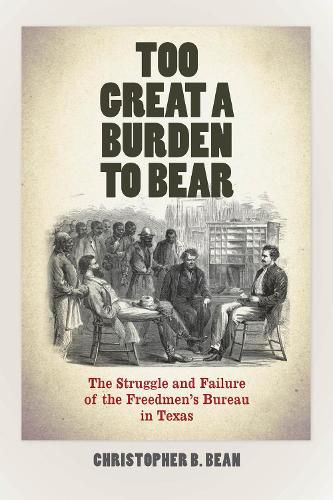Readings Newsletter
Become a Readings Member to make your shopping experience even easier.
Sign in or sign up for free!
You’re not far away from qualifying for FREE standard shipping within Australia
You’ve qualified for FREE standard shipping within Australia
The cart is loading…






In its brief seven-year existence, the Freedmen’s Bureau became the epicenter of the debate about Reconstruction. Historians have only recently begun to focus on the Bureau’s personnel in Texas, the individual agents termed the hearts of Reconstruction. Specifically addressing the historiographical debates concerning the character of the Bureau and its sub-assistant commissioners (SACs), Too Great a Burden to Bear sheds new light on the work and reputation of these agents.
Focusing on the agents on a personal level, author Christopher B. Bean reveals the type of man Bureau officials believed qualified to oversee the Freedpeople’s transition to freedom. This work shows that each agent, moved by his sense of fairness and ideas of citizenship, gender, and labor, represented the agency’s policy in his subdistrict. These men further ensured the former slaves’ right to an education and right of mobility, something they never had while in bondage.
$9.00 standard shipping within Australia
FREE standard shipping within Australia for orders over $100.00
Express & International shipping calculated at checkout
In its brief seven-year existence, the Freedmen’s Bureau became the epicenter of the debate about Reconstruction. Historians have only recently begun to focus on the Bureau’s personnel in Texas, the individual agents termed the hearts of Reconstruction. Specifically addressing the historiographical debates concerning the character of the Bureau and its sub-assistant commissioners (SACs), Too Great a Burden to Bear sheds new light on the work and reputation of these agents.
Focusing on the agents on a personal level, author Christopher B. Bean reveals the type of man Bureau officials believed qualified to oversee the Freedpeople’s transition to freedom. This work shows that each agent, moved by his sense of fairness and ideas of citizenship, gender, and labor, represented the agency’s policy in his subdistrict. These men further ensured the former slaves’ right to an education and right of mobility, something they never had while in bondage.